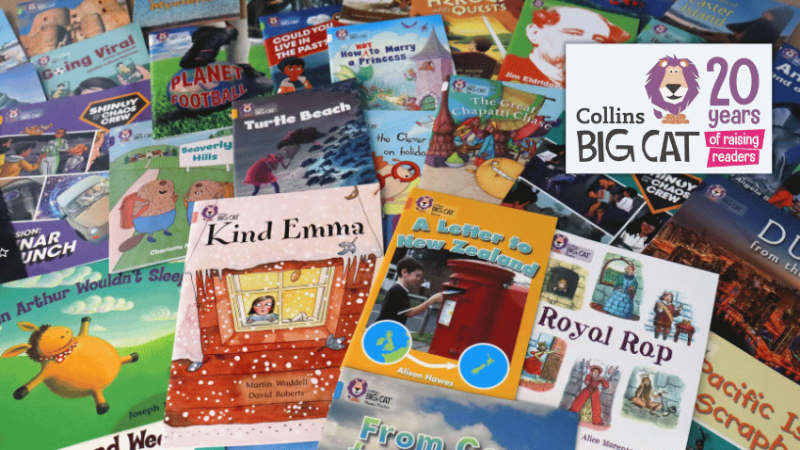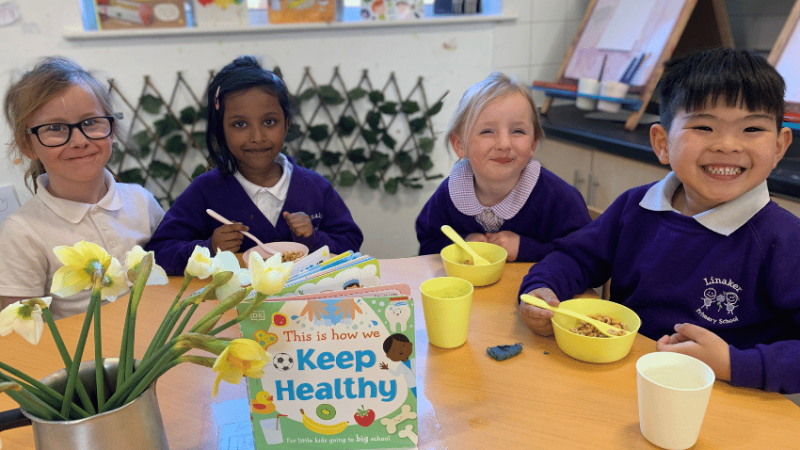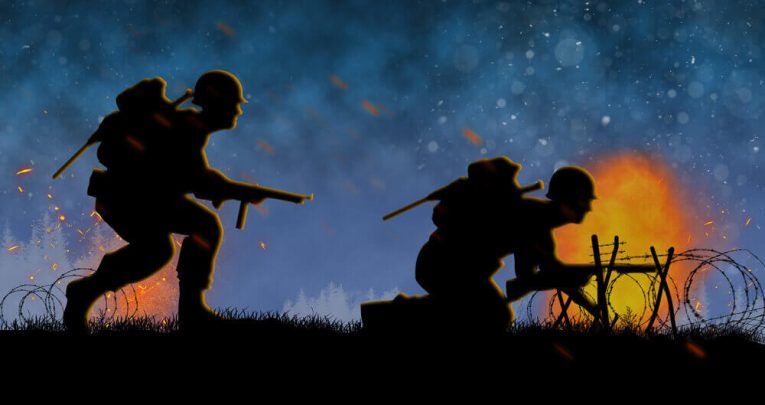Guided reading – Best activity ideas and lesson plans
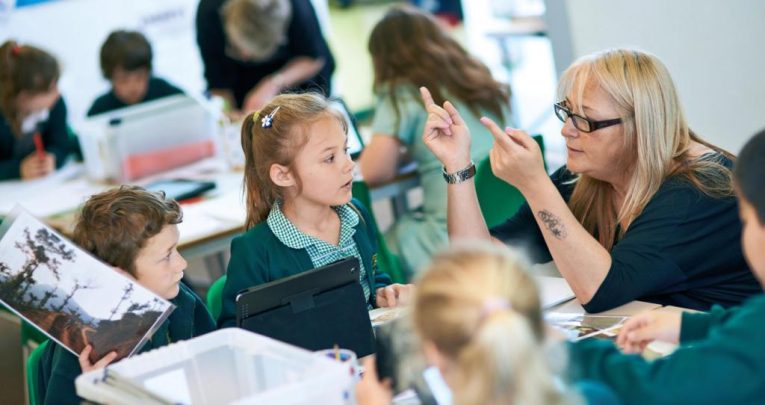
Make guided reading sessions better for you and your students with this selection of ideas, activities, advice and more…

- by Teachwire
- Classroom expertise and free resources for teachers
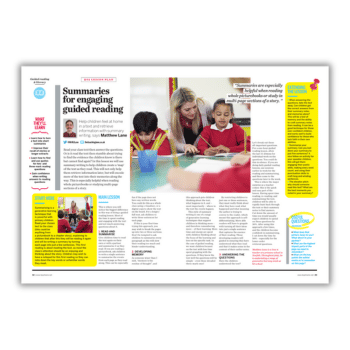
We delve into the essentials of guided reading and round up the best resources and strategies. And if you’re not a fan of guided reading, we’ve also got some great ideas about how to make it work for you…
What is guided reading?
As the name suggests, guided reading is where teachers work with students on their reading to make sure they can read the words and understand their meaning, make inferences from the text and comprehend it fully.
Guided reading KS2 lesson plan
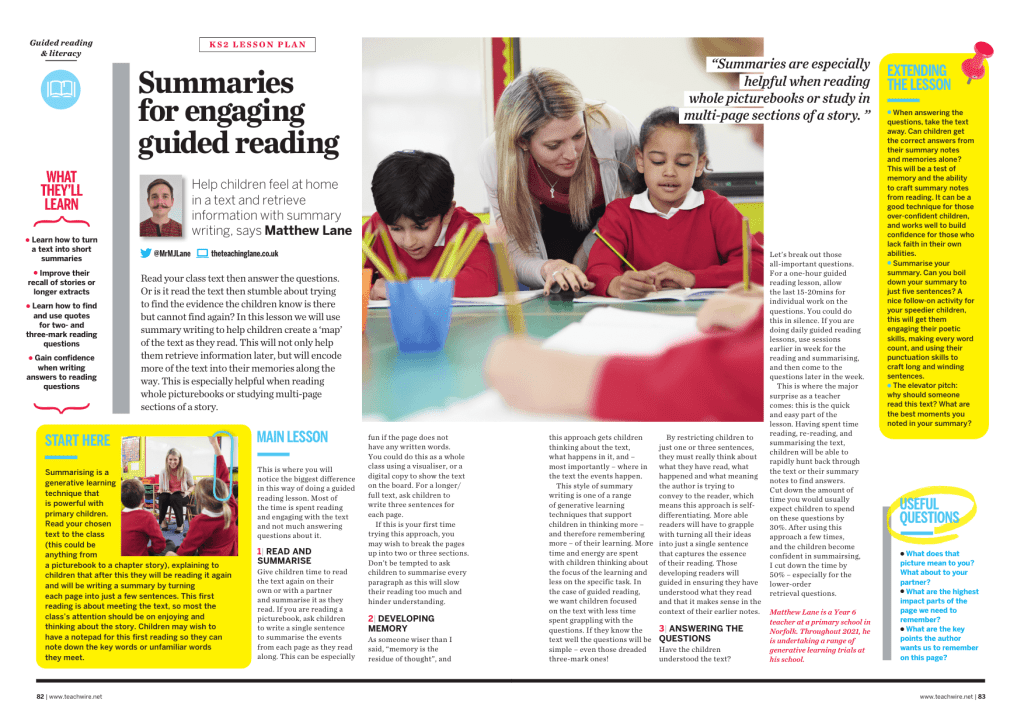
Help children feel at home in a text and retrieve information with summary writing, with this free KS2 guided reading lesson plan from teacher Matthew Lane.
In this lesson children will use summary writing to create a ‘map’ of your class text as they read. This not only helps them retrieve information later, but will also encode more of the text into their memories along the way.
This is especially helpful when reading whole picturebooks or studying multi-page sections of a story.
Hate guided reading? Try these ideas…
When is it best to teach guided reading? How much planning do you need to do? What are the best texts? How can you improve your questioning?
These are just some of the common questions teachers have about teaching guided reading. Whether you love it or loathe it, guided reading is probably the most well-used strategy for teaching reading in British primary schools.
Use the following ideas from Rachel Clarke and Charlotte Reed to inspire and support its continued use in your school…
1 Pick the right time of day
If you’re wavering on the ‘loathe it’ side of the guided reading debate, here’s a little thought about the value it can bring to you and your pupils.
“Guided reading ensures every child gets 20 ringfenced minutes with you, every week of the year”
Have you ever calculated how many minutes per day you spend with each child in your class? Pause for a moment: take a school day and divide it by 30 children; minus lesson introductions; subtract registration; take away playtime; carry a few over and reduce the sum by a lunchtime. It’s not much, is it?
Guided reading ensures every child gets 20 ringfenced minutes with you, every week of the year. You’ll need to plan carefully to protect this precious time.
Put it immediately after lunch and you can guarantee that lost sweatshirts, grazed knees and football disputes will eat into your reading session. Likewise, put it on a Friday after the awards assembly and you can rest assured you’ll only have five minutes before the bell goes for play.
Making the most of your guided reading session means choosing a time that won’t slip away.
2 Concentrate on one assessment focus
What about the amount of planning required for a good guided reading session? Our answer is – not very much.
We don’t intend this to be a flippant response. Guided reading is a mini-lesson, which means you need a minimal amount of content and planning to support it.
“Don’t feel the pressure to load every guided reading session with tonnes of whizzy teaching tricks”
We frequently remind teachers to apply the KISS (‘keep it simple, stupid’) principle to their guided reading. By this we mean you should concentrate on one assessment focus (AF). Don’t spend ages planning. And don’t feel the pressure to load every guided reading session with tonnes of whizzy teaching tricks.
Stick to your focused learning intention, ask questions about this focus and make it the subject of your assessment, too. You’ll still encounter unplanned opportunities to visit other AFs, but your lesson will have a much clearer learning intention.
3 Get children to do the work
Do you struggle to get the children active enough during the guided reading session? Finding ways to alter the pupil-teacher relationship can have a really positive impact.
Ask yourself this question: “Who’s working hardest in guided reading sessions?”. If the answer is you, then you need to take action. Now.
Try getting the children to ask questions of you and their peers during the session. Invest time in making some question stems. Teach the children how to use these to ask questions about a text.
“Ask yourself this question: “Who’s working hardest in guided reading sessions?””
The small group size used for guided reading makes it a perfect place for you and the children to experiment with developing a more dialogic approach to teaching and learning. For more information about dialogic approaches to teaching and learning, we recommend Neil Mercer’s Words and Minds.
Provide the oldest children and the most fluent readers with time to read the text before coming to the guided reading session. Then when you come together, try running the session more like a book group, with the children discussing and analysing the text. This strategy requires practice but, once mastered, you won’t look back.
4 Use statements instead of questions
We’ve taught and observed a lot of guided reading sessions, which means we’ve heard a lot of questions. We haven’t, though, heard so many statements.
This is where you take a question, phrase it as a statement and ask the children whether they agree or disagree. Your statements could look something like this:
- “This is a non-chronological report. Agree or disagree?”
- “Goldilocks was a criminal. Agree or disagree?”
What’s important about this type of questioning is not the ‘agree or disagree’ statement made by the children. It’s about how they justify their opinions through reference to what they know from the text, or their knowledge of different text types.
It’s this that makes it so versatile with children of all abilities and ages. For example, a child working at Level 1 may tell you Goldilocks was a criminal because she broke into the three bears’ home. A child working at Level 5 may tell you about a variety of text, sentence and word-level features that ensure the text couldn’t possibly be a non-chronological report, but is instead an explanation.
Critical thinking is central in this approach. The small group size used for guided reading means using statements can provide children with a context for discussion and debate. For further ideas for alternative approaches to questioning, we recommend Shirley Clarke’s book, Active Learning Through Formative Assessment.
5 Use ‘real’ books if you can
Reading a dull book is bad. Reading a dull book, discussing it with your teacher and then having to write about it is even worse.
The best texts for guided reading are the ones you and the children enjoy. There are some fabulous commercial guided reading schemes available. These are great if you’re new to guided reading or lack confidence in how to formulate your own questions on texts.
“The best texts for guided reading are the ones you and the children enjoy”
‘Real books’, though, provide children with exposure to texts they would not often choose themselves. Good quality books have a richness of vocabulary that not only engages children as readers, but stimulates their writing too.
6 Try picture books
Whilst reading longer texts is important, especially for children in the final years of KS2, we shouldn’t neglect good quality picture books.
Picture books can have a narrative depth that transcends words alone. How authors choose and use words for effect in these shorter narratives, whether alone or in combination with visual images, can inspire fascinating guided reading sessions.
Picture books also frequently offer us opportunities to explore more challenging themes in a ‘child-friendly’ manner. By doing this, we can use reading as a way to engage children with complex emotions, issues for debate and ideas they may otherwise not encounter.
We frequently use picture books from the Carnegies Medal for Illustration website. These have passed the strict judging criteria used in the award.
Rachel Clarke and Charlotte Reed are the directors of Primary English, an independent consultancy working with schools to raise standards in literacy.
More guided reading resources
Year 2 SATs practice paper packs
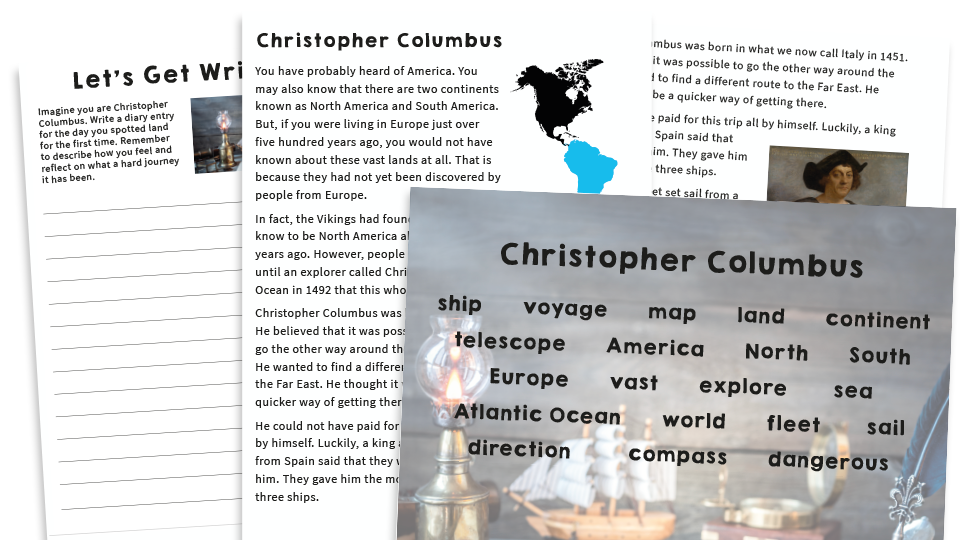
These KS1 SATs papers resource packs from Plazoom provide opportunities for Y2 pupils to develop KS1 reading comprehension and writing skills in preparation for SATs and end-of-year assessments.
The resources covers a variety of fiction and non-fiction texts, and include a model text with questions and answers, plus a fully resourced writing task. There’s also a PowerPoint that you can use for guided reading or whole-class reading.
KS2 reading comprehension packs

On to KS2, and these reading comprehension packs from Plazoom cover various topics, and include a model text as well as comprehension questions to develop pupils’ skills of retrieval, inference and vocabulary understanding. They can be used for guided reading, or as home learning.
Guided reading question generator dice

These guided reading dice from Plazoom are designed to help children to reflect on what they have read. At the end of a reading session, pupils can use them to generate a question about the text for a written or oral response.
How to revolutionise guided reading
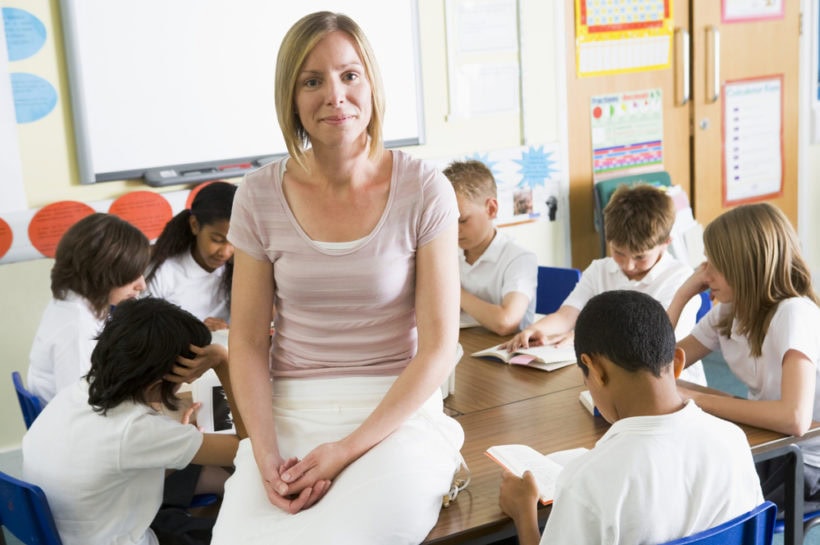
Looking for ways to spice up your guided reading sessions? This blog post on Teacher Toolkit from Hollie Anderton might be just what you’re after.
How to use ‘cloze’ activities to keep kids on-task
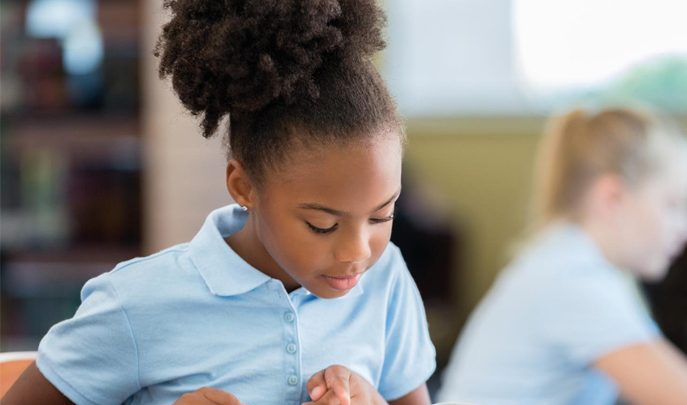
Exploring texts with a small group is time well spent, but how do you make sure the rest of the class isn’t losing out? Ian Eagleton investigates…
Guided reading has been, and still is, a popular way to teach, but it’s easy to get wrong. For instance, I used to set up carousel activities during guided reading sessions, hoping these would engage the remaining children and keep them working independently.
However, far too often these activities became time fillers, offering little challenge, enjoyment or scope for progress. As a result, those not taking part in guided reading would become distracted and disruptive, and all my time and energy would go into managing these pupils.
How, then, do we ensure that all children are engaged, progressing and enjoying reading when not reading with an adult?
“Far too often these activities became time fillers”
Cloze procedure
One of the activities I now set regularly is a ‘cloze procedure’ reading task. This is simply where you delete words from a passage and ask children to fill in the gaps.
If done well, this can be a powerful and interactive study in using contextual clues to find the unknown words. It also encourages discussion, prediction skills and can be a useful tool for assessing a child’s grasp of language and text structure.
In terms of national curriculum objectives, cloze procedure passages can also assist children in the following:
- working out the meaning of words from the context
- predicting what might happen from details stated and implied
- retrieving information from non-fiction
In the past, I have been reluctant to use cloze procedure passages, thinking them to be dreary and restrictive. However, you can adapt them in a range of ways to guarantee a purposeful, stimulating activity.
Choose a wide range of texts
I regularly use poems, stories and extracts from non-fiction texts such as newspapers, adverts and magazines. This allows the children to explore the pertinent linguistic features of different text types.
Sometimes I use extracts from classics such as The Railway Children, Black Beauty and Peter Pan if, say, I want to focus on exploring archaic language or investigating historical, social and cultural contexts. Or I might use a complete short story (around 100 words) to help develop the children’s understanding of structure.
I’ve also found it helpful to use extracts from texts the children have already read to help assess their recall of the main events, actions or ideas as well as to clarify their understanding of words or phrases.
Another good idea is to use a cloze procedure passage to introduce a text before you have studied it together. Here children’s prediction skills can come into play and you can monitor comprehension and their prior understanding of a topic or a concept. The chosen text needs to:
- provide challenge,
- relate to your pupils’ interests
- elicit an emotional response
- offer interesting themes to discuss and consider.
Deciding what to eliminate
Traditionally, we’ve used cloze procedure passages to test children’s subject knowledge or grasp of specialist, technical words. However, if you choose to delete a word that contributes to the overall meaning of the text, the activity can stimulate an interesting discussion.
Try to choose words other than nouns to remove. You could eliminate words that support sentence and paragraph cohesion, such as coordinating or subordinating conjunctions, or conjunctions that signal time such as ‘first’, ‘then’ and ‘next’.
Trending
Consider deleting words that could have more than one alternative meaning in order to promote dialogue and debate.
Differentiate, support and extend
There are many ways to differentiate the cloze procedure activity – other than the choice of vocabulary, that is.
Some children may reproduce the whole passage, including the deleted words, in order to develop their writing stamina, whereas others may only be filling in the blank spaces.
Pupils might be provided with the missing vocabulary or asked to explore a range of alternatives and think of words that could sensibly fit and make sense.
By emphasising words that are appropriate and meaningful, rather than words that are correct, you can offer children the chance to:
- discuss
- listen to others
- enhance their understanding
- revise their choices in an environment that is non-threatening
You could also ask the children to colour code the missing words using a tool such as Rainbow Writing. Do they think the missing words could be nouns (red), adjectives (orange), adverbs (yellow) or conjunctions (green)?
The cloze procedure could be adapted further by leaving gaps for punctuation – can the children punctuate the passage correctly using capital letters, full stops, question marks, apostrophes, commas after fronted adverbials and so on?
Ian Eagleton is director of NAHT Edge, the union for aspirational school leaders. Find out more at nahtedge.org.uk.
More guided reading ideas to try
1 | Exploring picture books
Encourage children to explore a range of picture books – they are ideal for developing inference, deduction and helping children to visualise a narrative.
They can also be accessed at different levels and used with more than one group in a multitude of ways. Looking at the pictures, children can hypothesise and draw inferences about characters’ thoughts, feelings and actions.
The children can also be challenged to write their own narrative inspired by the images, artwork and design.
2 | Reading ahead
Allow some time for the children to explore the book before you read it together – you may want to focus on a specific section. It is best if the children have access to their own copy, so that they can read at their own pace.
Encourage them to write down any questions, thoughts or reflections they have and use these to instigate a discussion when you read together. They will certainly be more engaged by working on their personal areas of interest and they will have more of a sense of purpose.
3 | Free reading
I feel that being given the freedom to choose what you read is a valid and important part of developing motivated readers. It also allows teachers to informally track their classes’ reading habits and preferences.
Ensure you have a range of appealing, high-quality books available for children to pick up, put down, dip into, explore, read aloud, laugh over and share.
How to support reading comprehension during guided reading
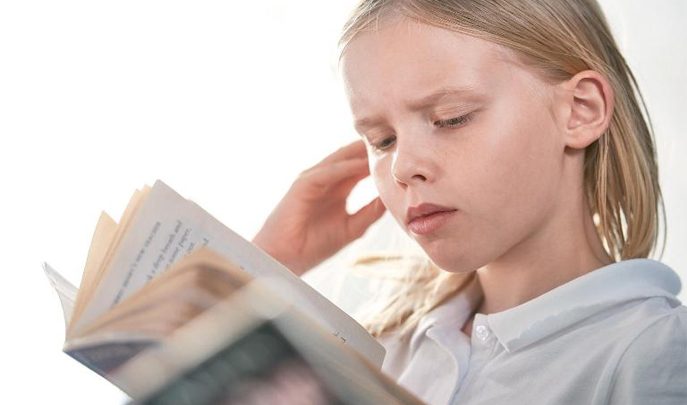
Guided reading can be the perfect way to teach the comprehension element of the national curriculum, says James Clements…
Comprehension – constructing a mental model of what we read – is central to becoming a confident and competent reader, but teaching children to develop such a complex set of skills and behaviours can be notoriously difficult.
Organised and taught well, guided reading can be the perfect match for teaching the reading component of the curriculum. It allows for plenty of teacher-child dialogue, and the interactive nature of working in a group means learning is collaborative, with children learning from their peers.
Working in a small group enables you to focus on each individual child, targeting your questioning, and addressing any misconceptions as they occur.
It also allows you to assess children’s reading skills without having to resort to written tests, which are often as much a test of writing ability as they are of reading.
So, what can you do in guided reading sessions to best support the development of children’s comprehension skills?
1 | Assess and teach ‘casual inference’
Inference is often seen as the top of the hierarchy of comprehension skills. As teachers we’re often keen to get to rich text or character-based comprehension questions such as, ‘How does Max feel when he is sent to his room without any supper?’
But for many developing readers, the first potential stumbling block comes with casual inference. These are the little particles of understanding that confident readers take for granted.
This can include missing cohesive devices such as not following lexical cohesion from sentence to sentence: ‘Katie was thirsty. After some moaning, her sister handed her the bottle.’
Or not being able to identify who is being referred to by a particular pronoun in a sentence: ‘Tom snatched the ball from Sam’s hands. He began to cry.’
“For many developing readers, the first potential stumbling block comes with casual inference”
This is particularly true for children who are not yet strong word-readers and are using lots of processing power to decode the words on the page.
The small group nature of guided reading gives us the opportunity to check children’s understanding of the text as they read, supporting them to make the casual inferences that are needed to understand the text as a whole.
2 | Pre-teach the context
A key element of comprehension is being able to match what we’re reading to our knowledge of the outside world – to use our general knowledge to build a mental image of the information in the text.
If we don’t know anything about a particular topic, it can be very difficult to make sense of what we’re reading.
For a child, Leon Garfield’s wonderful narrative version of Julius Caesar is a much richer experience if they know something about the Roman senate and that the Romans overthrew their last king. This helps them to appreciate Brutus’ dilemma and understand the significance of Caesar being offered a crown.
While it wouldn’t be possible to pre-teach the background knowledge for everything children are about to read, guided reading gives an opportunity to do this in a small way.
A few moments sharing a relevant picture at the start of a session, for example, means that all children can access the story.
3 | Model comprehension monitoring
Comprehension monitoring is the ability that confident readers have. It allows them to recognise if they haven’t understood what they’ve read.
It is what makes us re-read a sentence, make sure we haven’t skipped a page, or even go away to undertake the operose task of looking up the meaning of an unfamiliar word (like now, perhaps).
A guided reading session allows you plenty of opportunities to model this behaviour with the children who need it most, using a text closely matched to their level of understanding.
Effective teaching approaches include asking children to summarise the passage they have just read, or teaching children to form a mental image as they read, helping them to detect inconsistencies or missing information.
4 | Give children regular reading time
One of the most effective ways of supporting children’s developing reading comprehension is regular time to read.
After the age of seven, most of the new words we learn come from reading, and breadth of vocabulary plays an important role in children’s understanding of what they read.
“After the age of seven, most of the new words we learn come from reading”
Effective guided reading can help to keep children interested in books by providing them with regular time to enjoy engaging stories that will resonate with their interests and capture their imagination.
James Clements is co-author of Teaching the Reading Curriculum: The Role of High-Quality Guided Reading.
Guided reading myths
Guided reading began life as part of the old National Literacy Strategy, and some teachers still worry about how far they can stray from the traditional carousel model of five small groups reading with an adult once per week for 20 minutes.
In fact, guided reading offers considerable flexibility as a vehicle for teaching reading.
Myth: In guided reading, children should be organised into five groups of six children
Just because there are 30 children in most classes and five days in the week, it doesn’t automatically follow that each guided reading group should be the same size.
Actually, guided reading groups can be of any size: smaller groups for an intensive focus with the children who need it, to larger groups for longer reading sessions.
The key is that each child is working with a text that is accessible but challenging, and has the opportunity to engage with the teacher and their peers in genuine discussion about the book.
Myth: Guided reading should be organised as a carousel
There is no set structure for organising guided reading sessions. Schools are free to set up sessions however they wish. What is important is that children are engaged in meaningful activities that will develop some aspect of their reading and that guided reading is having an impact on the standard of children’s reading.
Myth: Guided reading sessions should last for 20 minutes
In most schools guided reading has moved out of the English lesson to become a part of the school day in its own right.
The length of sessions is at the discretion of the teacher – many schools have successfully used a model where guided reading is organised into fewer, but longer weekly sessions.
Myth: All children must read aloud during their guided reading session with an adult
Children who are developing as readers, especially those in the early part of the school, will benefit from reading aloud to an adult as often as possible. By Key Stage 2, the great majority should have developed strong word-reading skills.
Guided reading is therefore now an opportunity for high-quality discussion based on the text, with children using the book they have read to justify their views.
A literature circle approach can work well, with children reading the book away from the session and coming to their session with the teacher ready to discuss what they have read.


